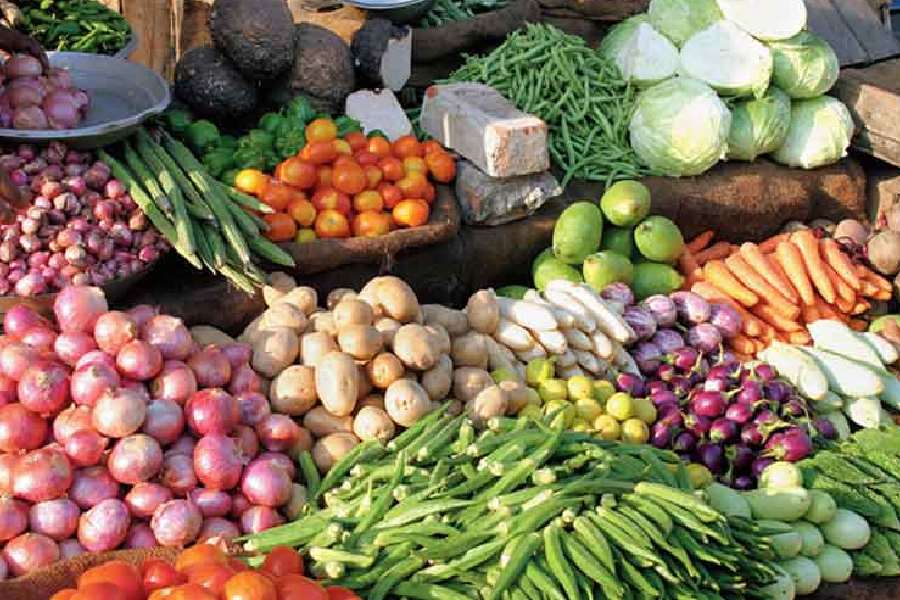Extreme weather, lower reservoir levels and crop damage have affected farm output and led to higher food prices over the past two years, the government's Economic Survey 2023-24 said on Monday.
Unfavourable weather conditions particularly impacted the production prospects of vegetables and pulses, it said.
"In FY23 and FY24, the agriculture sector was affected by extreme weather events, lower reservoir levels, and damaged crops that adversely affected farm output and food prices. So, food inflation based on the Consumer Food Price Index (CFPI) increased from 3.8 per cent in FY22 to 6.6 per cent in FY23 and further to 7.5 per cent in FY24," read the consolidated report on the state of the economy in the previous year.
Food inflation has been a global phenomenon in the last two years. Research, the government said, indicates the rising vulnerability of food prices to climate change – heat waves, uneven monsoon distribution, unseasonal rainfall, hailstorms, torrential rainfall, and historic dry conditions.
According to the Economic Survey, tomato prices surged in July 2023 due to seasonal changes, region-specific crop diseases such as white fly infestation, the early arrival of monsoonal rain in the northern part of the country, and logistics disruptions in isolated areas due to heavy rainfall.
The spike in onion prices was attributed to several factors, including rainfall during the last harvesting season affecting the quality of rabi onions, delays in sowing during the kharif season, prolonged dry spells impacting kharif production, and trade-related measures taken by other countries.
"The prices of pulses, particularly of tur, increased due to low production over the past two years, caused by adverse weather conditions. Urad production was affected by slow sowing progress in the rabi season coupled with climatic disturbances in the southern states," the government said.
The area and output of gram was also lower compared to the previous rabi season, it said.
The government also said the Indian economy has consolidated its post-Covid recovery and is on a strong wicket and stable footing, demonstrating resilience in the face of geopolitical challenges.
For the recovery to be sustained, it stressed, there has to be heavy lifting on the domestic front because the environment has become extraordinarily difficult for reaching agreements on key global issues such as trade, investment and climate.
Except for the headline, this story has not been edited by The Telegraph Online staff and has been published from a syndicated feed.











